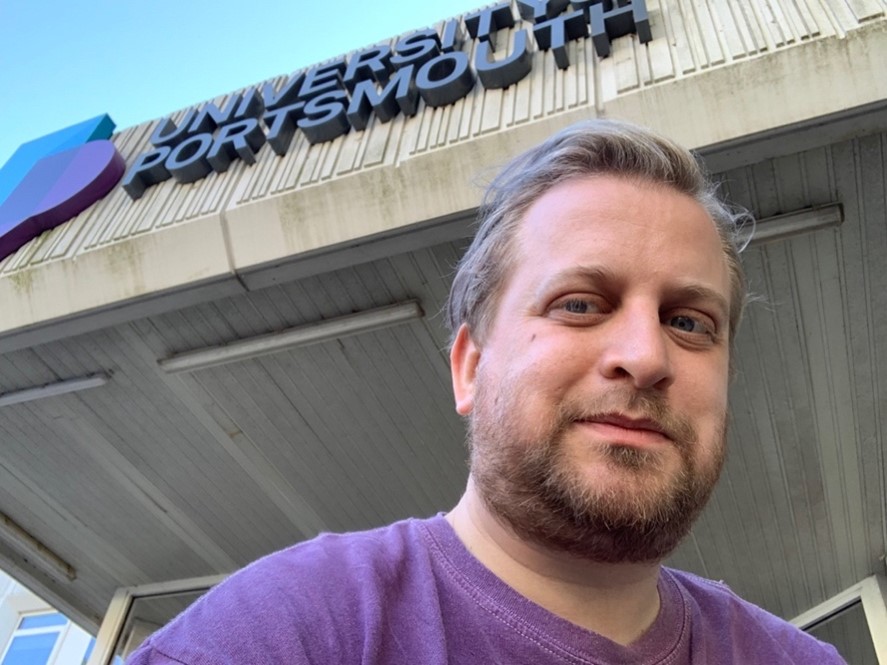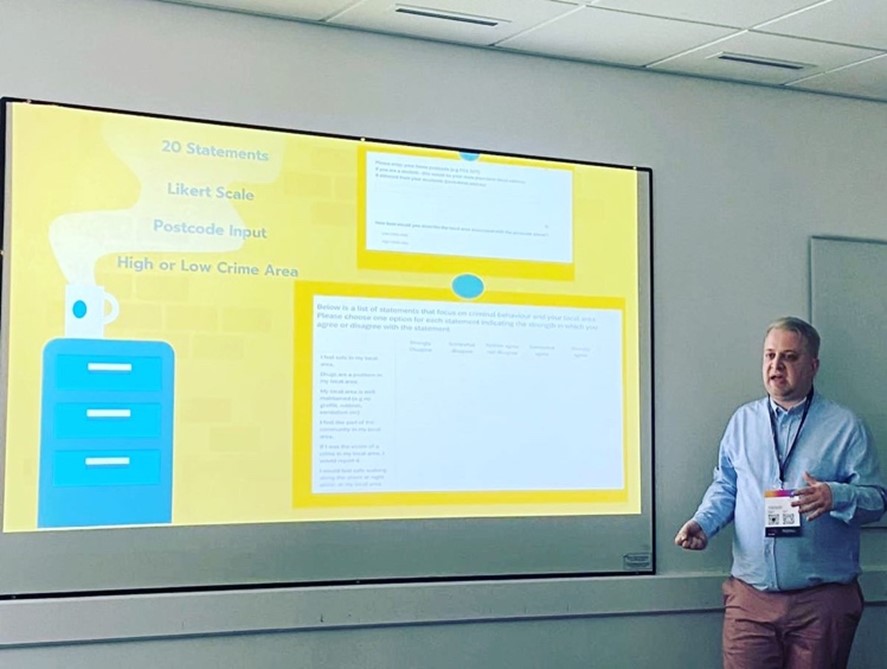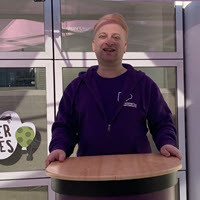This #Take5 is brought to you from Luke Basford a student at Portsmouth University who delivered a riveting keynote at #ALDcone23 online in June last year. We were so impressed with Luke that we asked him for this blog also. In this #Take5 Luke shares his journey to Learning Development and support as a mature student.
Who, me?
At first, I never believed that I would be able to attend university. It seemed like something that was expected of me by those around me, rather than a personal aspiration. I vividly remember the eulogy at my grandad’s funeral, where each of his grandchildren was mentioned. I was praised for my dedication to my studies, and how I would be the first Basford to attend university. But I wasn’t.

The road leading to Portsmouth
15 years later, I had established myself in the workforce and was working full-time. I started out at Toys R Us before working at the local City Council and the Houses of Parliament. Eventually, I found my true passion working in mental health support and helping people in the community who were struggling. This became my purpose for the next decade until the Covid pandemic hit. Like many others, I took a step back and reflected on my priorities and purpose. I realised I wanted to do more and decided to pursue a degree in Forensic Psychology at the University of Portsmouth. Finally, in September 2021, I began my studies. On that day, I couldn’t help but feel emotional and looked up at the sky, knowing my Grandad would be proud.
Starting out as a mature student
After a few months, I was thoroughly enjoying the course and felt as though I had never been away from education. My worries about feeling out of place as an older student surrounded by younger classmates proved to be unfounded as I made friends with people of all ages and backgrounds throughout the course. I even became a course rep and a University Ambassador, fully immersing myself in the department. I was also pleased with my performance on my first university assignment.
For a 500-word pass/fail assignment, we were tasked with writing persuasively on whether social media had a positive or negative influence. I aimed to showcase my academic skills and began with a strong statement, ” Social media is a quotidian activity.” I then highlighted how “Social media creates an incandescent feeling, sharing images, memories and conversations with loved ones “. Finally, I cited a relevant study by Hardy and Castonguay (2016) which showed “Multifarious social media usage created statistical significance in correlation with the possibility of a nervous breakdown”. I submitted the work and felt good about it. This was the metaphorical moment for me to sit in front of a fireplace with a satin dressing gown, glass of whiskey and cigar. All I had to do was sit back and wait for the grade to come in.
A Dunce!
PASS! I felt confident and would almost say I knew this was coming, at the end of the tutorial my tutor asked me to stay behind for a quick chat and what she said I did not see coming. “I think it would be best if you spoke to Learning Development, your work is good but….” I couldn’t believe it. Learning Development! In school I had always been a top performer, top class sets and top grades and now I was at the other end of the spectrum. A dunce!
I kept the conversation to myself and didn’t reach out to Learning Development right away. I even skipped a weekly tutor group session in case my tutor questioned me about meeting with them. I waited as long as possible before finally booking an appointment. I sent an email, completed the support request form, and waited for my appointment date.
The dread of facing Learning Development
The day I had been dreading finally arrived. I had imagined a brightly coloured space filled with motivational noticeboards displaying phrases such as “Hang in there!”, “You can do it!”, and “Uni isn’t for everyone!”. Upon arrival, I expected to be greeted by an overly enthusiastic person who would by obligation compliment me and my work and ask me to complete worksheets about my feelings, thoughts, and worries. I was worried about this. I gulped, took a deep breath, knocked on the door and entered the room.
Three magic questions
Over the course of my hour session, I realised how wrong I was, and in fact, it was not like that at all. I was asked three questions within the first 5 minutes of the session:
Within five minutes of the session beginning, I went from wanting to be a man overboard to being the captain of the support ship! It made everything person-centred and I felt in control of my own support, my development.
During our discussion, we talked about my experience returning to university as a mature student and the fact that it had been 15 years since I last attended class. Together, we identified areas that had changed and where I needed to improve. I received helpful tools and templates to use when developing ideas for my assessments. Specifically, I received guidance and support on referencing using APA7, which was new to me and proving to be difficult.
In addition, I had the opportunity to speak with someone who understood the challenges of being a mature student in university. They recognised the emotional aspects of returning to education and provided me with validation and support. They did not view me as a dunce but rather as someone who required guidance to reach the same level as my peers, ensuring equal opportunities for all students. They spoke to me respectfully and addressed my concerns. I discovered that I don’t need to write like an academic and in fact, my work could reach a much wider audience if written to be understood. I also realised that many mature students seek learning support when returning to education and that I was not alone. Most importantly, I found a source of support that I could turn to whenever needed.

Fast forward to the present day
Fast forward to today as I write this blog at the end of my second year at the University of Portsmouth. I still access and use Learning Development often but feel proud and thankful for the support I receive. I am working hard on my studies and have achieved a first in all modules to date so fingers crossed for first-class honours and most recently attended BCUR (British Conference of Undergraduate Research) to present research that you will be pleased to hear was well received and everyone could understand!
Although there may be some challenges in terms of reaching out to students and promoting support services, I am committed to being a reliable source of guidance and assistance to all students. It is my hope that by sharing my personal experience of how Learning Development made a difference in my own university journey, I can inspire others to seek out the help they need to succeed.
About Luke Basford

Luke is a current undergraduate Forensic Psychology student at the University of Portsmouth. Luke is very active in the psychology department taking on roles as Course Representative, Student Mentor, British Psychological Society Ambassador and President of the Psychology Society. Elsewhere on campus, Luke works as a University Ambassador, Digital Engagement Officer and recently won the award for Peer Advisor of the Year 2023, for his work as Peer Advisor at Portsmouth University Student Union. Luke plans to complete his doctorate in clinical psychology after graduation and is already gaining experience working with Hampshire Constabulary, HM Prison Service and the NHS.
